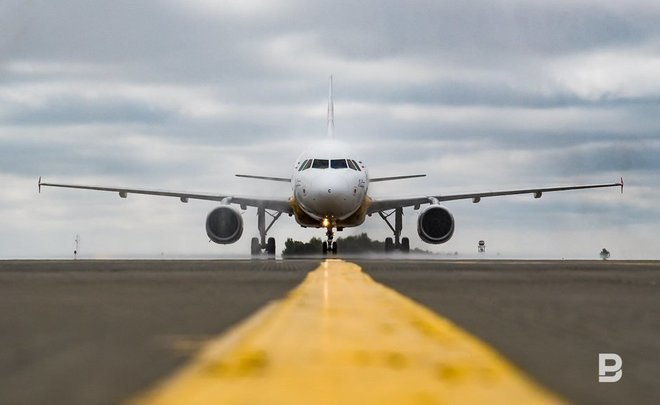Barley in exchange for textiles: Tatarstan business flies to Iran for ‘shopping’
Entrepreneurs of the republic will go to Tehran to study which goods can replace the brands hat left

Tatarstan is actively developing business ties with Iran, which has been under sanctions for over 40 years. In early March, Tatarstan entrepreneurs will go on a business mission to Tehran as part of the Russian cooperation programme. As its curator Anton Vazilov told Realnoe Vremya, businesses will find new suppliers of clothing and textiles in the Islamic Republic to replace the withdrawn Western brands, as well as expand export supplies of its own products. “Tatarstan exports $50 million worth of goods to Iran annually, mainly barley. Now there is an opportunity to expand the range of products," he said.
Tatarstan entrepreneurs going to Tehran
Iran may become one of the suppliers of consumer goods to Russia along with Turkey and China after the withdrawal of Western brands. Agreement with the Islamic Republic on such cooperation is the goal of the first foreign visit of Tatarstan entrepreneurs to Tehran this year, which is scheduled for March 5-8. According to preliminary estimates, representatives of about two dozen enterprises from Tatarstan will be represented in the delegation, but their names are not disclosed to protect them from sanctions restrictions.
A meeting with the leadership of the Ministry of Industry, Mines and Trade of Iran (responsible for foreign economic activity in the country) will be held in Tehran as part of the Russian cooperation expansion programme. According to the head-organiser of the programme, Anton Vazilov, who held more than 20 business events with Iranian entrepreneurs last year, the interest of Russian and Tatarstan businesses, in particular, in cooperation with Iran is caused by the need to replace European consumer goods, whose supplies stopped with the withdrawal of large foreign companies from the country.

For their part, the Iranians are interested in exporting Russian wood, plywood and lumber, which cost them more than metal. The Islamic Republic also has a great demand for food grains. “Tatarstan exports $50 million worth of goods to Iran annually, mainly barley. Now there is an opportunity to expand the range of products," the curator of the programme said. According to him, the business mission will be held with the participation of the Russian trade representative in Iran, Rustam Zhiganshin.
Cooperation with Iran is on the rise
Now, according to Vazilov, is the most favourable time to establish new contacts with Iran, as cooperation is on an upward trend:
“The trade turnover between Russia and Iran in the first 10 months of 2022 exceeded a record $4 billion (in 2021 — the same figure for the whole year). In 2022, exports increased by 27%, imports — by 10%, compared with 2021. Within the framework of the global partnership with the Russian Federation, Iran declares its readiness to replace products that have left the Russian market due to the harsh sanctions impact.”
The main items of Russian exports were food products and agricultural raw materials — this is over 80%. The rest is accounted for by vehicles, wood, and pulp and paper products, chemical products. Mainly food products and agricultural raw materials are imported. However, in terms of the number of participants in foreign economic activity, Iran has not yet been included in the top ten countries (China, Germany, Turkey). According to the resource ved-stаt.com , 839 Russian companies worked with Iran (420 importers, 456 exporters, data for 2019), which is seven times less than with Turkey.
On the other hand, Iran is interested in Russian partners for the implementation of investment projects. According to Anton Vazilov, Iran is ready to provide a preferential tax regime for the localisation of high-tech products, as the Iranian government is pursuing a protective policy. A huge plus is the cheapness of energy resources, which is 10 times less than in Russia, as well as cheap labour. The average salary is about $200-300, Vazilov noted.
How not to get confused in calculations
Meanwhile, the main difficulty in cooperation with Iranian suppliers is to carry out financial calculations, experts say. Payments from Iranian companies go through third countries — the UAE. They write on thematic forums that “Iranians use Saudis for contracts, since there is 'no SWIFT system' in the country (in July last year, Iran and Russia continued to work on creating an interbank payment system similar to SWIFT).
“Ideally, we need a company-layer in Iran, which will buy and consolidate at home, and then export, make payment through the Saudis. It is advisable to do everything in rubles, otherwise the customs value will float heavily," experts warn.
However, the organiser of the trip, Anton Vazilov, assures that recommendations will be given at the seminar with the participants of the foreign economic activity on how to properly conduct settlement operations between Iran and Russia.
Last September, Tatarstan President Rustam Minnikhanov visited Iran. He met with the business circles of East Azerbaijan (Iran) and discussed issues of expanding economic cooperation.
During the working visit of the Tatarstan leader, the economic and industrial potential of the republic was presented.
“Iranian business should be represented in Tatarstan, we will create all conditions," promised Rustam Minnikhanov.
Later, the president of Tatarstan met with the governor of the province of East Azerbaijan, Zein Al Abedin Razavi Khorram. The parties discussed the expansion of the transport corridor “North”, the press service of the president of the Republic of Tatarstan reported.